Table of Contents
Relationship with Self – The Power Within Understanding Self-Connection and Its Impact on Personal Growth
Did you know that nearly 85% of people struggle with low self-esteem, often rooted in a poor relationship with self?”
To love oneself is the beginning of a lifelong romance.
Oscar Wilde
Self-connection is the foundation of a fulfilling and authentic life. At its core, self-connection is about developing a deep and meaningful relationship with self. It involves understanding your thoughts, emotions, values, and desires, and aligning your actions with your true self. By fostering self-connection, you can unlock a wealth of personal growth and well-being.
Explore more on Self-Love: Love Begins with You, 5 Techniques to Foster Self-Love: The First Step to Truly Loving Others
When you are truly connected with yourself, you gain clarity about who you are and what you want out of life. This clarity enables you to make decisions that are in harmony with your values and goals. It also helps you recognize and honor your emotions, which is crucial for emotional resilience and mental health. Instead of being driven by external expectations or societal pressures, you begin to live a life that is authentic and true to you.
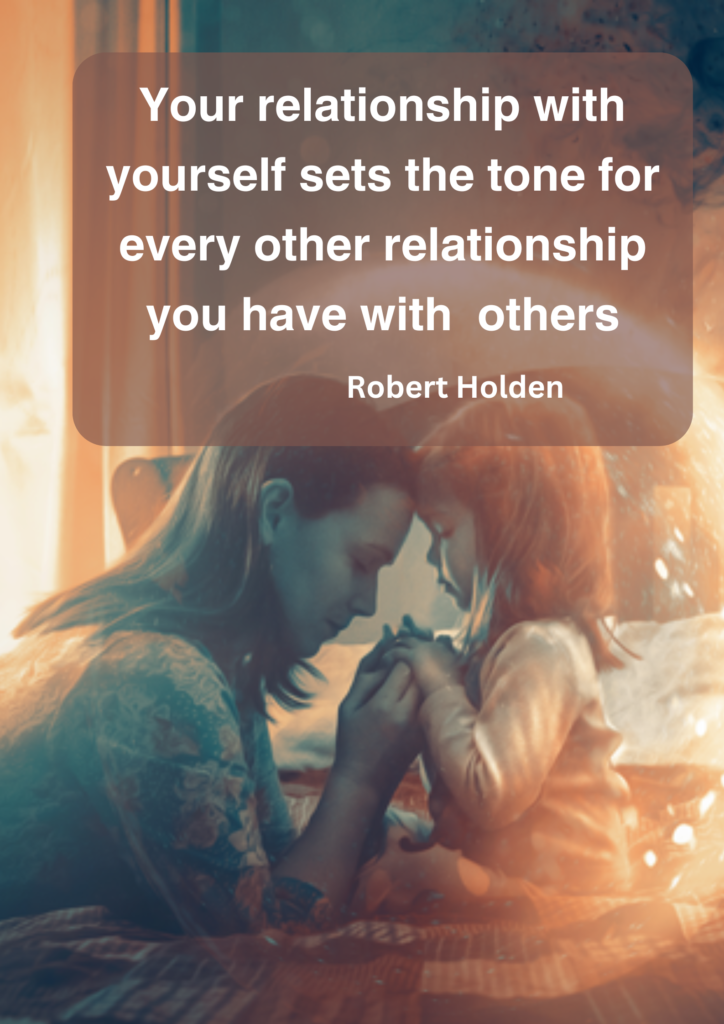
The significance of self-connection extends to all areas of personal growth. When you understand yourself better, you can identify areas for improvement and set meaningful goals. Self-connection fosters a growth mindset, allowing you to see challenges as opportunities for learning and development. It also enhances your self-awareness, which is vital for effective communication and building healthy relationships.
Moreover, self-connection plays a crucial role in your overall well-being. By being in tune with your needs and boundaries, you can practice better self-care and avoid burnout. Self-connection also promotes self-compassion, helping you to be kinder to yourself and to navigate life’s ups and downs with greater ease.
In essence, self-connection is the cornerstone of a fulfilled and balanced life. By cultivating a strong relationship with self, you pave the way for personal growth, emotional resilience, and lasting well-being. Start your journey towards self-connection today, and discover the transformative power it holds for your life.
Cultivating Self-Harmony: Practical Strategies for a Fulfilling Relationship with Self
The purpose of this blog is to provide you with practical strategies to cultivate a harmonious relationship with self. In our fast-paced, externally focused world, it’s easy to lose touch with our inner selves. However, developing a strong and positive self-connection is crucial for personal growth, emotional resilience, and overall well-being.
Learn about Forgiveness: Understanding the Spiritual Meaning of Forgiveness: 6 Awesome Ways To Healing the Soul
This blog will guide you through various techniques and practices designed to help you understand and appreciate yourself better. We will explore methods for continuous learning, encouraging you to expand your knowledge and skills. By embracing lifelong learning, you will not only enhance your capabilities but also foster adaptability and a growth mindset.
Self-reflection will be another key focus, as it allows you to evaluate your progress and identify areas for improvement. Through regular introspection, you can align your actions with your core values and goals, leading to a more authentic and fulfilling life.
Additionally, we will delve into the importance of healthy habits, such as exercise, meditation, and balanced living, which support both your physical and mental well-being. By integrating these habits into your daily routine, you will create a foundation for sustained personal growth.
Join us on this journey to unlock the secrets of self-connection and transform your relationship with self.
Unlocking Inner Harmony: The Importance of Self-Connection
We are often taught the importance of having harmonious relationships with everyone around us—our family, friends, colleagues, and community. However, we rarely learn about the crucial need to develop a relationship with self. Self-connection, the foundation of a fulfilling and balanced life, involves understanding your thoughts, emotions, values, and desires, and aligning your actions with your true self. By fostering self-connection, you gain clarity, purpose, and a sense of inner peace that drives personal growth and overall well-being.
Check This Blog: Transform Your Life: 15 Powerful Prioritise Yourself Quotes
When you are truly connected with yourself, you understand who you are at your core. This self-awareness enables you to make decisions that resonate with your values and goals, leading to a more authentic and fulfilling life. Rather than being influenced by external expectations or societal pressures, you begin to live according to what truly matters to you.
Self-connection is crucial for several reasons. First, it enhances your emotional resilience. When you are in tune with your emotions, you can recognize and address them more effectively, preventing them from overwhelming you. This emotional intelligence allows you to navigate life’s challenges with greater ease and grace.
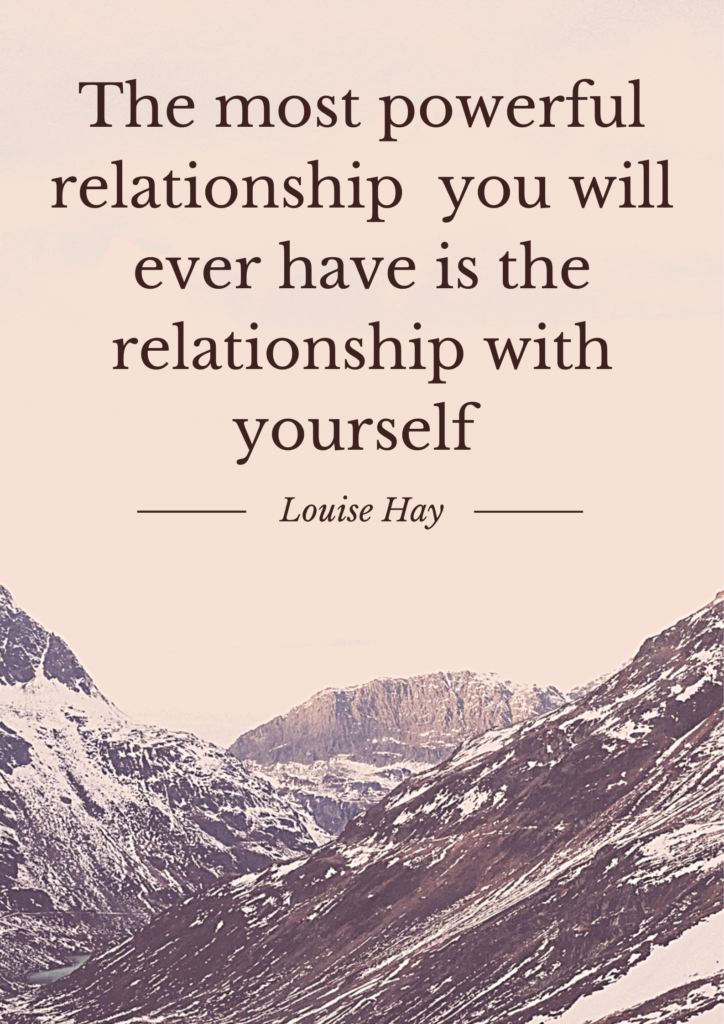
Second, self-connection promotes mental health. By acknowledging your needs and setting boundaries, you can practice better self-care, reducing stress and avoiding burnout. This holistic approach to well-being helps you maintain balance in all areas of your life.
Third, a strong self-connection fosters personal growth. When you are aware of your strengths and weaknesses, you can identify areas for improvement and set meaningful goals. This self-awareness drives a growth mindset, encouraging you to see challenges as opportunities for learning and development.
Finally, self-connection improves your relationships with others. By understanding and accepting yourself, you become more empathetic and compassionate towards others. This deeper sense of empathy strengthens your connections and enhances your ability to communicate effectively.
In essence, self-connection is about knowing, accepting, and loving yourself. It is the foundation for a fulfilling life, driving personal growth, emotional resilience, and lasting well-being. By cultivating a strong relationship with self, you unlock the potential for a richer, more meaningful existence. Start your journey towards self-connection today and experience the transformative power it holds.
Recognizing the Signs of Poor Self-Connection
Self-connection is the foundation of a fulfilling and balanced life, but many of us struggle with it, often without realizing it. Poor self-connection can manifest in various ways, impacting your overall well-being and personal growth. Here are some common signs that indicate a lack of self-connection:
Connect with Your Inner Child: From Pain to Peace: 7 Books on Healing Childhood Trauma and Building Resilience
- Self-Doubt: One of the most telling signs of poor self-connection is constant self-doubt. If you frequently question your abilities, decisions, and worth, it means you lack trust in yourself. This self-doubt can prevent you from pursuing opportunities and realizing your full potential.
- Negative Self-Talk: Pay attention to your inner dialogue. If you often engage in negative self-talk, criticizing and belittling yourself, it indicates a poor relationship with self. This negative chatter can erode your self-esteem and confidence, making it difficult to take positive actions.
- Feelings of Unworthiness: Feeling unworthy or undeserving of love, success, or happiness is a clear sign of poor self-connection. These feelings can stem from past experiences or societal pressures, but they prevent you from embracing your true value and potential.
- People-Pleasing Behavior: Constantly seeking validation and approval from others, even at the expense of your own needs and desires, signifies a lack of self-connection. People-pleasing behavior often arises from a fear of rejection and a deep-seated need to feel accepted.
- Difficulty Making Decisions: Struggling to make decisions, big or small, can indicate a lack of self-connection. When you are disconnected from your true self, you may find it challenging to understand what you truly want or need, leading to indecisiveness.
- Avoidance of Alone Time: If you avoid spending time alone and constantly seek distractions, it may be because you are uncomfortable with your own thoughts and feelings. This avoidance can prevent you from developing a deeper understanding of yourself.
Recognizing these signs is the first step towards improving your self-connection. By acknowledging these issues, you can begin to take proactive steps to foster a healthier, more fulfilling relationship with self. Embrace self-awareness, practice self-compassion, and prioritize your well-being to strengthen your self-connection and unlock your full potential.
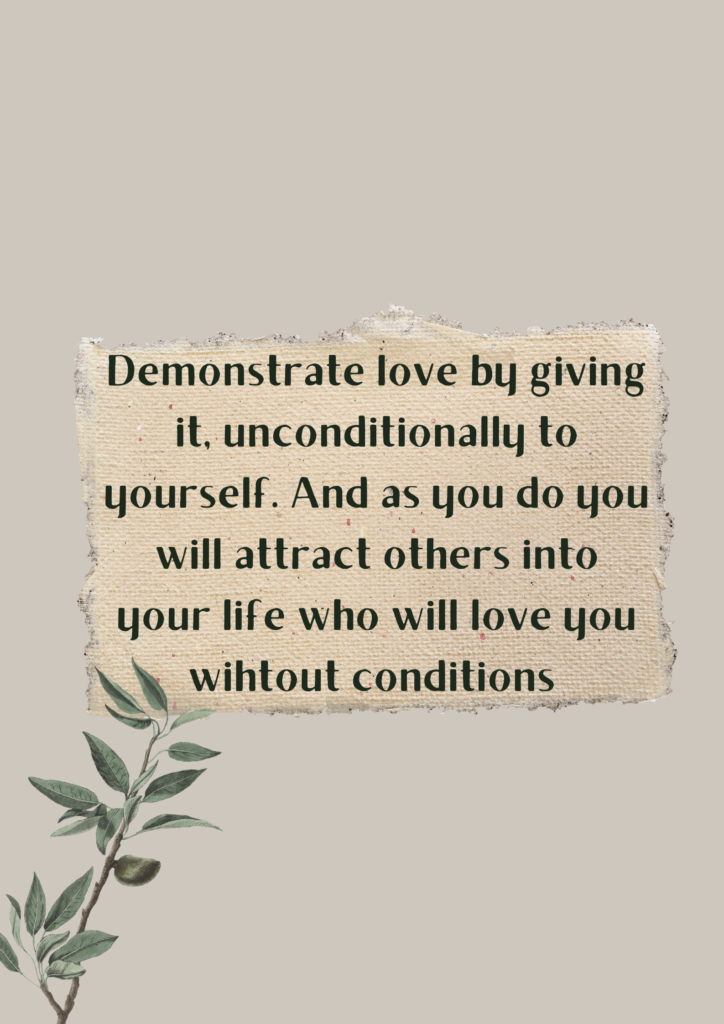
Building a Harmonious Relationship with Self: 8 Strategies for Self-Connection
Developing a harmonious relationship with self is essential for personal growth, well-being, and fulfillment. It’s about cultivating a deep understanding, acceptance, and love for who you are. Here are some strategies to help you strengthen your self-connection:
Check This Blog: Unlocking the Mind-Body Connection: 6 Undeniable Strategies for Nurturing Mental Health for Improved Physical Well-Being
Practice Self-Awareness:
Begin by cultivating self-awareness, the foundation of self-connection. Pay attention to your thoughts, emotions, and behaviors without judgment. Journaling, meditation, and mindfulness exercises can help you become more attuned to your inner world.
Cultivate Self-Compassion:
Treat yourself with kindness, understanding, and compassion, especially during challenging times. Practice self-compassionate language and remind yourself that you are worthy of love and acceptance, just as you are.
Set Boundaries:
Establish clear boundaries that honor your needs, values, and limits. Learn to say no to things that drain your energy or compromise your well-being. Boundaries are essential for maintaining healthy relationship with self and others. Setting and maintaining healthy boundaries is essential for fostering self-respect, maintaining well-being, and nurturing healthy relationships. Here are some tips to help you establish and uphold boundaries effectively.
- Know Your Limits: Take the time to identify your physical, emotional, and mental limits. Reflect on situations or behaviors that leave you feeling uncomfortable, drained, or overwhelmed. Understanding your limits is the first step towards setting boundaries that honor your well-being.
- Communicate Clearly: Clearly communicate your boundaries to others in a respectful and assertive manner. Use “I” statements to express your needs and preferences without blaming or criticizing others. Be direct and specific about what is and isn’t acceptable to you.
- Be Consistent: Consistency is key when it comes to maintaining boundaries. Stick to your boundaries even when faced with resistance or pushback from others. Consistent enforcement sends a clear message that your boundaries are non-negotiable.
- Practice Self-Assertiveness: Develop assertiveness skills to confidently assert your boundaries without feeling guilty or apologizing. Stand firm in your decisions and resist the urge to accommodate others at the expense of your own well-being.
- Trust Your Instincts: Trust your instincts and intuition when it comes to recognizing situations or relationships that may require boundary-setting. Listen to your inner voice and honor your feelings, even if they go against societal norms or expectations.
Embrace Vulnerability: Allow yourself to be vulnerable and authentic. Share your thoughts, feelings, and experiences with trusted individuals who respect and support you. Vulnerability fosters intimacy and deepens your connection with yourself and others.
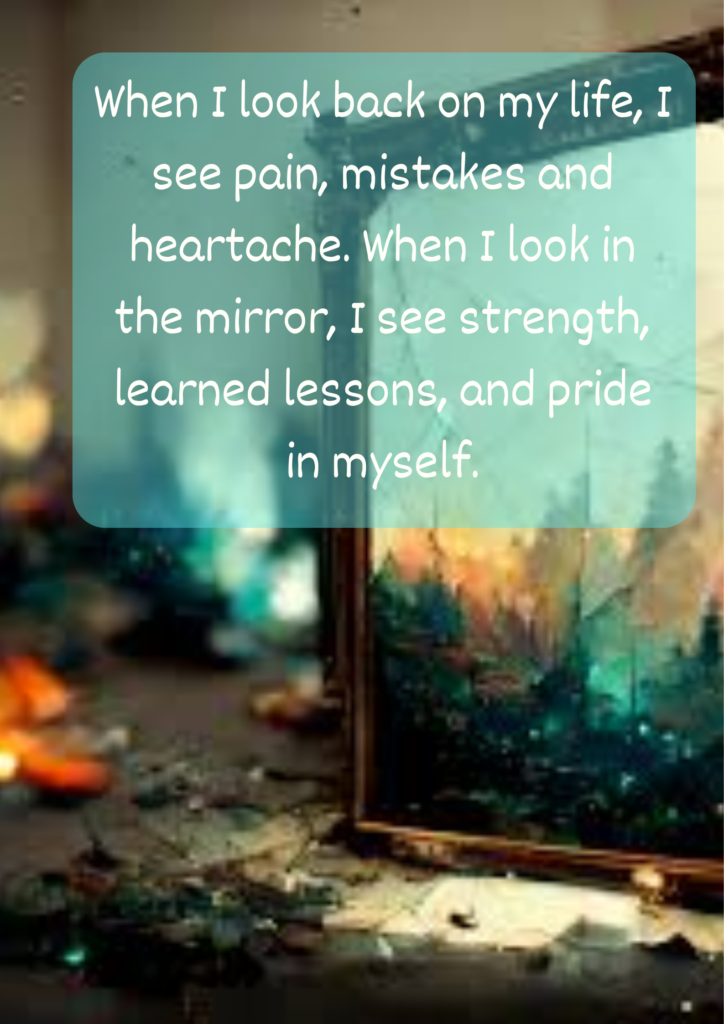
Embracing vulnerability is a courageous act that allows us to connect more deeply with ourselves and others. Here’s a step-by-step outline to help you embrace vulnerability:
- Acknowledge Your Emotions:
- Take the time to identify and acknowledge your emotions. Name what you’re feeling without judgment or criticism.
- Allow yourself to sit with your emotions, even if they’re uncomfortable or challenging. Recognize that all emotions are valid and serve a purpose.
- Practice Self-Compassion:
- Cultivate self-compassion by treating yourself with kindness and understanding, especially when you’re feeling vulnerable.
- Offer yourself words of encouragement and support, acknowledging that vulnerability is a natural part of the human experience.
- Identify Trusted Individuals:
- Reflect on the people in your life whom you trust and feel safe with. These individuals should be supportive, non-judgmental, and capable of holding space for your vulnerability.
- Choose one or two trusted individuals whom you feel comfortable sharing your emotions and vulnerabilities with.
- Open Up and Share:
- When you feel ready, open up and share your emotions with your trusted individuals. Be honest and authentic about how you’re feeling and what you’re experiencing.
- Practice vulnerability by expressing your thoughts, fears, and insecurities without holding back or trying to appear strong.
- Be Present and Listen:
- After sharing your vulnerabilities, be present and listen to the response of your trusted individuals. Allow them to offer support, empathy, and validation for your feelings.
- Practice active listening by giving your full attention to what they’re saying without interrupting or judging.
- Accept Support and Validation:
- Accept the support and validation offered by your trusted individuals. Allow yourself to receive their kindness and compassion without pushing it away.
- Recognize that vulnerability is a shared experience and that receiving support from others can help strengthen your connection and resilience.
- Reflect and Process:
- Take time to reflect on your experience of embracing vulnerability. Notice any shifts in your emotions or perceptions and acknowledge the courage it took to be vulnerable.
- Process your feelings and insights through journaling, meditation, or talking with a therapist, if needed.
By following these steps, you can gradually embrace vulnerability as a pathway to deeper connection, authenticity, and growth in your life.
Learn to Embrace: Embracing Imperfection: 6 Techniques To Overcome Perfectionism and Foster Creative Freedom
Pursue Personal Growth: Commit to continuous learning and growth. Set meaningful goals that align with your values and aspirations. Embrace challenges as opportunities for self-discovery and development. Here are some activities to help you cultivate personal growth and embrace new experiences:
- Learning New Skills:
- Enroll in a course or workshop to learn a new skill or hobby that interests you, such as painting, photography, cooking, or playing a musical instrument.
- Take advantage of online resources like tutorials, webinars, and educational platforms to acquire knowledge in areas you’re curious about, such as coding, graphic design, or languages.
- Setting Goals:
- Set specific, achievable goals that align with your interests, values, and aspirations. Break larger goals into smaller, manageable tasks to make progress more attainable.
- Create a vision board or journal to visually represent your goals and keep yourself motivated and focused on your objectives.
- Regularly review and adjust your goals as needed to ensure they remain relevant and meaningful to you.
- Seeking New Experiences:
- Step out of your comfort zone by trying new activities or experiences that challenge you and expand your perspective. This could include traveling to new places, participating in cultural events, or volunteering for causes you’re passionate about.
- Engage in activities that stimulate your creativity and imagination, such as attending art exhibits, writing poetry, or exploring nature.
- Connect with diverse communities and individuals to broaden your social circle and expose yourself to different perspectives and ideas.
- Personal Development Workshops and Seminars:
- Attend personal development workshops, seminars, or conferences to gain insights, skills, and inspiration from experts and thought leaders in various fields.
- Participate in group activities or team-building exercises that foster collaboration, communication, and problem-solving skills.
- Reflective Practices:
- Incorporate reflective practices into your routine, such as journaling, meditation, or mindfulness exercises. These activities can help you gain clarity, self-awareness, and a deeper understanding of yourself and your goals.
- Take time to celebrate your achievements and milestones along your personal growth journey. Acknowledge your progress and recognize the efforts you’ve made to overcome challenges and pursue your goals.
By engaging in these activities, you can cultivate personal growth, expand your horizons, and enrich your life with new experiences, skills, and perspectives.
Practice Self-Care: Prioritize your physical, emotional, and mental well-being. Engage in activities that nourish and rejuvenate you, whether it’s exercise, creative pursuits, or spending time in nature. Self-care is essential for replenishing your energy and maintaining balance. Here are some tips for practicing self-care:
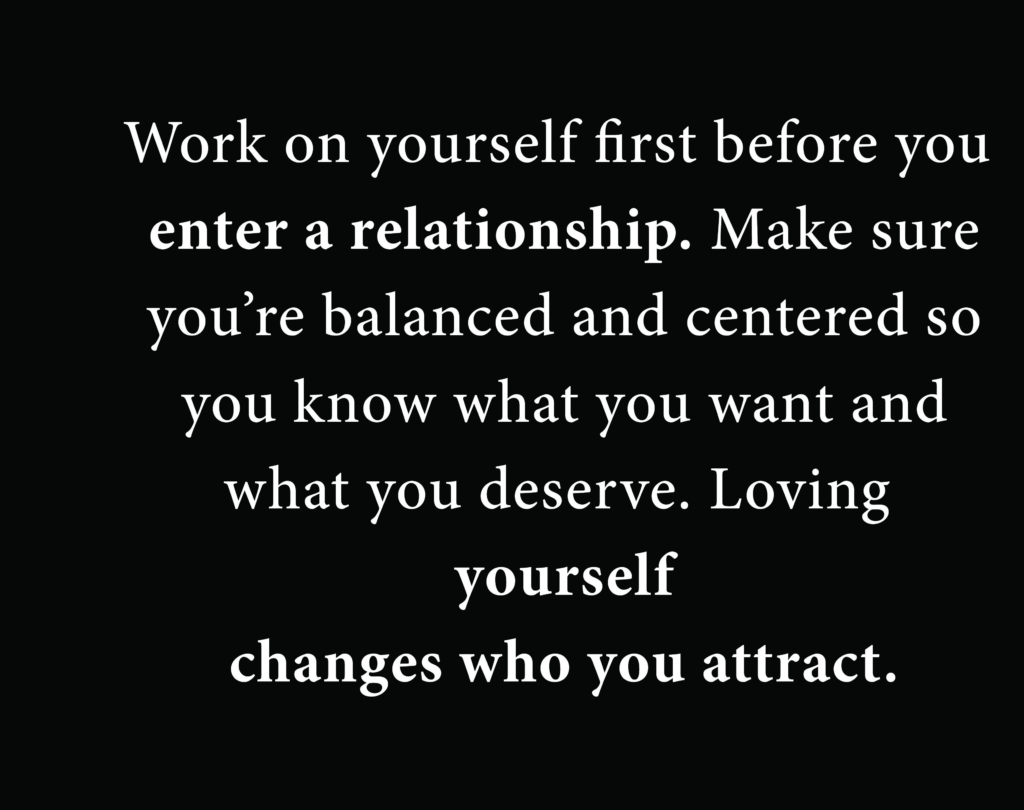
1. Prioritize Your Physical Health:
- Make time for regular exercise that you enjoy, whether it’s yoga, jogging, dancing, or simply going for a walk.
- Ensure you get enough sleep each night to feel rested and rejuvenated. Establish a relaxing bedtime routine to help you unwind and prepare for sleep.
2. Nourish Your Body
- Eat a balanced diet rich in fruits, vegetables, whole grains, lean proteins, and healthy fats to fuel your body and mind.
- Stay hydrated by drinking plenty of water throughout the day. Limit your intake of caffeine, sugary drinks, and alcohol.
3. Practice Relaxation Techniques:
- Incorporate relaxation techniques into your daily routine, such as deep breathing exercises, meditation, progressive muscle relaxation, or mindfulness practices.
- Set aside time for activities that help you unwind and de-stress, such as taking a warm bath, reading a book, or listening to calming music.
4. Engage in Activities You Enjoy:
- Make time for hobbies and activities that bring you joy and fulfillment, whether it’s painting, gardening, playing a musical instrument, or cooking.
- Schedule regular breaks throughout your day to engage in activities that recharge your energy and lift your spirits.
5. Connect with Others:
- Nurture your relationships with friends, family, and loved ones. Spend quality time together, whether it’s sharing a meal, going for a walk, or having a heartfelt conversation.
- Reach out for support when you need it. Don’t hesitate to lean on others for emotional support and encouragement during challenging times.
6. Set Boundaries:
- Learn to say no to activities or commitments that drain your energy or overwhelm you. Set clear boundaries to protect your time, energy, and well-being.
- Prioritize your own needs and self-care without feeling guilty or selfish. Remember that taking care of yourself enables you to show up as your best self for others.
7. Practice Self-Compassion:
- Be kind and compassionate towards yourself, especially during difficult times. Treat yourself with the same understanding and empathy you would offer to a friend facing similar challenges.
- Reframe negative self-talk into positive affirmations and messages of self-love and acceptance.
Remember that self-care is a personal journey, and it’s essential to find what works best for you. Listen to your body and mind, and prioritize activities that nourish and replenish your energy and well-being.
Know Yourself: Awaken Your Essence: 10 Magical Key Principles To Your True Power
Celebrate Your Successes: Acknowledge and celebrate your achievements, no matter how small. Recognize your progress and strengths, and give yourself credit for your efforts. Celebrating successes boosts your confidence and reinforces positive self-esteem.
Forgive Yourself: Let go of past mistakes and regrets. Practice self-forgiveness and release yourself from guilt and shame. Understand that you are human and deserving of forgiveness, just like anyone else.
Building a harmonious relationship with self takes time, patience, and commitment. Be gentle with yourself as you embark on this journey of self-discovery and self-acceptance. By implementing these strategies, you can cultivate a deeper sense of connection, resilience, and inner peace within yourself.
Overcoming Challenges in Building Self-Connection
Building a strong and meaningful connection with yourself is a transformative journey, but it’s not without its challenges. Here are some common obstacles people face in building self-connection, along with strategies to overcome them:

Common Obstacles:
- Fear of Judgment: Many individuals hesitate to explore their inner thoughts and emotions due to fear of judgment from others. They worry about how they will be perceived if they show vulnerability or share their true selves.
- Past Trauma: Past experiences of trauma or emotional wounds can create barriers to self-connection. Individuals may struggle to trust themselves or others, leading to feelings of isolation and disconnection.
- Self-Doubt: Persistent self-doubt and negative self-talk can sabotage efforts to build self-connection. Inner critic voices may undermine confidence and make it challenging to recognize and honor one’s needs and desires.
Solutions:
- Practice Self-Compassion: Cultivate self-compassion by treating yourself with kindness and understanding. Remind yourself that it’s okay to be imperfect and that vulnerability is a strength, not a weakness.
- Create a Safe Space: Find a safe and supportive environment where you can explore your thoughts and feelings without fear of judgment. This could be with a trusted friend, therapist, or support group.
- Seek Professional Help: If past trauma is hindering your ability to connect with yourself, consider seeking professional help from a therapist or counselor. They can provide guidance and support as you work through unresolved issues.
- Challenge Negative Beliefs: Challenge negative beliefs and self-limiting beliefs that hold you back from self-connection. Replace them with affirmations and positive self-talk that reinforce your worth and value.
- Practice Mindfulness: Engage in mindfulness practices such as meditation, deep breathing, or body scans to cultivate self-awareness and presence. These practices can help you tune into your inner experiences and connect with yourself on a deeper level.
- Set Boundaries: Establish clear boundaries to protect your time, energy, and well-being. Learn to say no to activities or commitments that drain you and prioritize activities that nourish and replenish you.
By identifying and addressing these common obstacles, you can navigate the challenges of building self-connection more effectively. With perseverance, self-compassion, and support, you can cultivate a deeper and more fulfilling relationship with self.
Nurturing Self-Connection: Strategies for Daily Maintenance
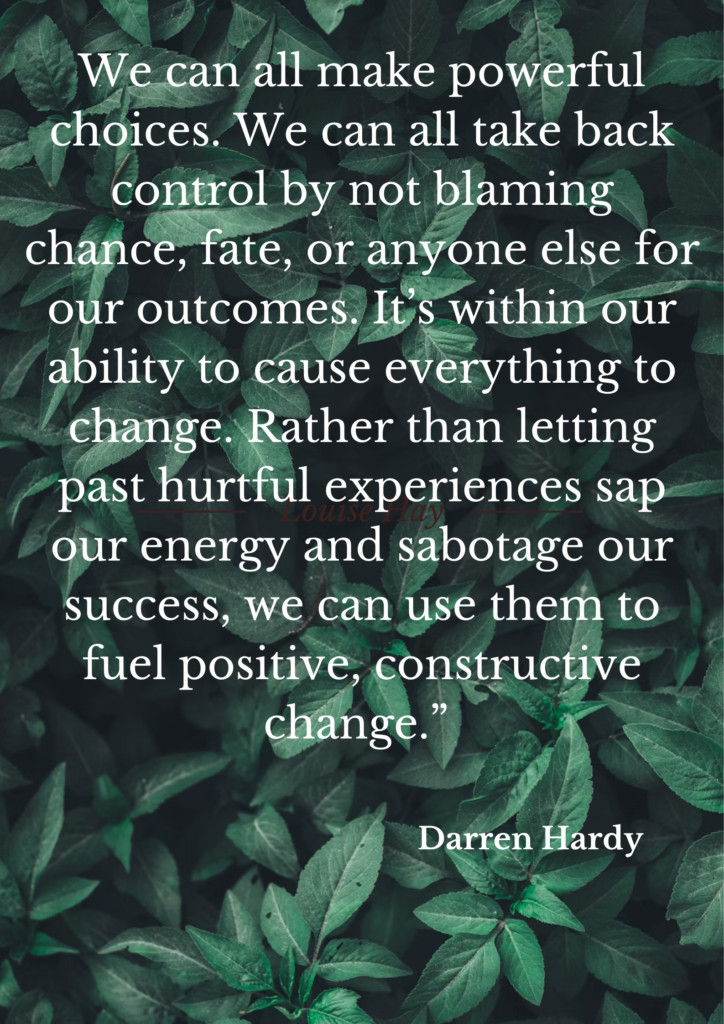
Maintaining a strong and resilient connection with oneself is essential for overall well-being and personal growth. Here are some strategies to help you cultivate and sustain self-connection in your daily life:
Love Yourself: Self-Love Revolution: 5 Practical Steps for Cultivating Self-Love
Daily Practices:
- Regular Self-Reflection: Set aside time each day for self-reflection and introspection. This can involve journaling, meditation, or simply quiet contemplation. Reflect on your thoughts, emotions, and experiences, and identify areas for growth and self-improvement.
- Gratitude Journaling: Start a gratitude journal to cultivate appreciation for the blessings and positive aspects of your life. Each day, write down three things you’re grateful for, no matter how small. Practicing gratitude can help shift your focus towards the positive and foster a sense of contentment and connection.
- Mindful Awareness: Practice mindfulness throughout your day by bringing awareness to the present moment. Notice your thoughts, sensations, and emotions without judgment or attachment. Mindfulness can help you stay grounded and connected to yourself amidst the busyness of daily life.
Periodic Check-ins:
- Scheduled Self-Assessment: Set aside time periodically to assess your self-connection practices and make any necessary adjustments. Ask yourself questions such as, “How am I feeling emotionally and mentally?” and “Am I honoring my needs and values?” Use this reflection time to course-correct and realign with your intentions.
- Review and Revise: Review your self-connection routines and rituals regularly to ensure they remain effective and meaningful. Experiment with new practices and techniques to keep your self-connection journey fresh and engaging. Be open to adapting your approach based on your evolving needs and priorities.
By incorporating these daily practices and periodic check-ins into your routine, you can cultivate a strong and resilient connection with yourself. Nurturing self-connection is an ongoing process that requires dedication, self-awareness, and mindfulness. As you prioritize your relationship with self, you’ll experience greater inner peace, fulfillment, and authenticity in your life.
Conclusion:
Nurturing a harmonious relationship with self is a transformative journey that requires dedication, self-awareness, and compassion. Despite the common challenges and obstacles that may arise along the way, it’s essential to remember that self-connection is a vital foundation for personal growth and well-being.
By implementing the strategies discussed in this blog—such as practicing self-compassion, engaging in daily self-care rituals, and seeking support when needed—readers can cultivate a deeper sense of connection and authenticity within themselves. These practices empower individuals to navigate life’s challenges with resilience, clarity, and self-confidence. Here’s a summary of the key points discussed in the blog:
- Understanding Self-Connection: The blog delved into the concept of self-connection, emphasizing its significance in personal growth and well-being. It highlighted the importance of developing a deep, meaningful relationship with self.
- Common Challenges: It identified common obstacles people face in building self-connection, such as fear of judgment and past trauma. These challenges can hinder one’s ability to connect with oneself authentically.
- Strategies for Overcoming Challenges: The blog offered practical solutions and coping strategies to overcome these obstacles. It emphasized the importance of practicing self-compassion, creating a safe space for self-expression, and seeking professional help if needed.
- Daily Practices for Maintenance: It recommended daily practices to maintain a strong self-connection, such as regular self-reflection, gratitude journaling, and mindful awareness. These practices help individuals stay grounded and connected to themselves amidst the busyness of daily life.
- Periodic Check-ins: The blog suggested scheduling regular check-ins with oneself to assess and adjust self-connection practices. This allows individuals to course-correct and realign with their intentions on their self-connection journey.
As readers embark on their own self-connection journey, it’s important to remember that progress is not linear, and setbacks are a natural part of the process. Embracing vulnerability, practicing self-forgiveness, and staying committed to self-care are essential components of this transformative path.
Finally, the blog encourages readers to actively engage with the content by sharing their experiences and insights in the comments section. By fostering a supportive and empowering community dedicated to personal growth and self-discovery, readers can continue to inspire and uplift one another on their journey towards greater self-connection and fulfillment.
Cultivating self-connection is a journey that requires dedication, self-awareness, and mindfulness. By implementing the strategies discussed and sharing experiences with others, readers can nurture a stronger, more fulfilling relationship with self.
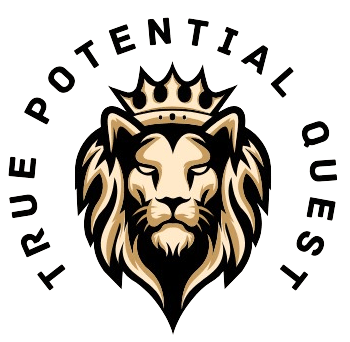




Pingback: Soul Purpose Uncovered: 4 Powerful Strategies for a Meaningful and Passionate Life - True Potential Quest
Pingback: Expectations for a Relationship: 6 Awesome Ways What You Need to Know - True Potential Quest
Hello! I sent a request but haven’t received a response yet. Please contact me via WhatsApp or by phone.
wa.me/+79173031189
Hello
You can message here or email on truepotentialquest@gmail.com